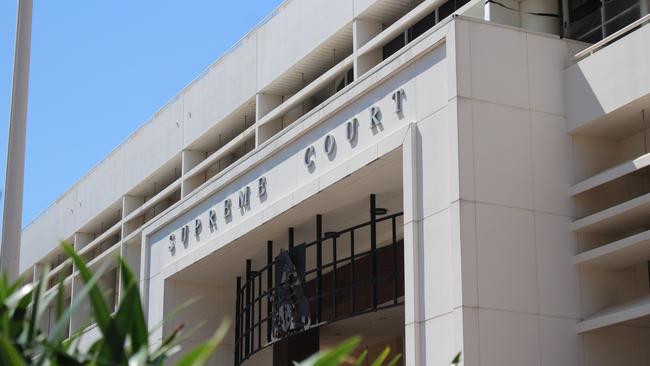NT age of criminal responsibility test case dismissed by Supreme Court
A challenge which could have had profound impacts on the age of criminal responsibility has failed in the Supreme Court.
Police & Courts
Don't miss out on the headlines from Police & Courts. Followed categories will be added to My News.
A BID to challenge the age of criminal responsibility in the Territory has failed after the courts found a teenager should have known that slapping her teacher was wrong.
The Supreme Court has dismissed an appeal surrounding a 13-year-old girl who allegedly slapped her assistant principal during a schoolyard scuffle at Palmerston College.
The child, who cannot be named for legal reasons, was charged with assaulting a worker in the split-second attack while the adult was trying to stop her fighting with another girl in March 2020.
In November, the 13-year-old was found not guilty, with her charges dismissed by Judge Elisabeth Armitage in the Youth Justice Court.
Ms Armitage said the girl did not have the ability to understand why the slap was criminally wrong.
“I am unable to find any evidence that points to the defendant having a capacity to understand the difference between the inappropriateness of fighting with other children, and the concept that a single slap aggravated the behaviour to such an extent that she could or should have understood that the slap was seriously or morally wrong,” Ms Armitage said.
This slap was set to become the test case for the age of criminal responsibility after police challenged Ms Armitage’s ruling and dragged the case into the Supreme Court.
Under NT law, the burden of proof falls on prosecutors to show a child aged between 10 and 14 are able to understand if their actions are morally wrong.
In an April Supreme Court appeal hearing, Crown prosecutor Helen Spowart argued the decision to dismiss the 13-year-old’s charges put the test of criminal responsibility “too high”.
Yet, barrister Phillip Boulten said the girl was too young to understand the difference between “naughty” acts — which could land her in school detention — and a criminal offence potentially leading to prison.
Justice Peter Barr said he struggled to see how a slap fell into an immoral act.
“Is slapping a teacher or a person in authority, is it a moral wrong? … There seems to be a significant grey area between morally wrong and naughtiness,” he said in April.

This month Justice Barr dismissed the police appeal, saying there had been no substantial miscarriage of justice in Ms Armitage’s decision.
“(It is) alternatively in the inherent jurisdiction of the court,” he said.
However, Justice Barr said Ms Armitage had made an error by setting the bar too high by saying the 13-year-old needed to understand the slap was “seriously wrong by the ordinary standards of reasonable adults”.
“In my opinion, however, combining the qualifying adverb ‘seriously’ with the adjective ‘wrong’ is not a “simple gloss”. It clearly raises the bar,” he said.
“(And) in my opinion, there was clear evidence that the respondent had the capacity to know that it was wrong to strike the Assistant Principal to the face,” he said.
Justice Barr said it was not necessary to prove that a child understood that a low level crime went beyond being “merely naughty, mischievous or rude” and became a “serious wrong” under the criminal law.
Justice Barr said despite having practically identical criminal codes Northern Territory, Queensland and Western Australian courts had come to very different conclusions on this legal question.
“The difficulty in the present case is that I am faced with apparently conflicting approaches adopted by the intermediate appellate courts of those two states,” he said.
Justice Barr said he favoured the Queensland decision, which had greater application for children involved in low level crimes.
He said for a child to be responsible they must have “the capacity to know that he ought not to do the act”.
“The Queensland decisions avoid the false dichotomy of “seriously wrong” as opposed to “merely naughty, mischievous or rude” by providing a ‘middle ground’,” he said.
Despite finding in the police’s favour, Justice Barr said it was not in “the interests of justice” to send the matter back to the Youth Justice Court.
”(The case) was then more than two years since the assault, and it would now be another four to six months, if that, before the matter were reheard,” he said.
“Accordingly, the appeal will be dismissed.”




